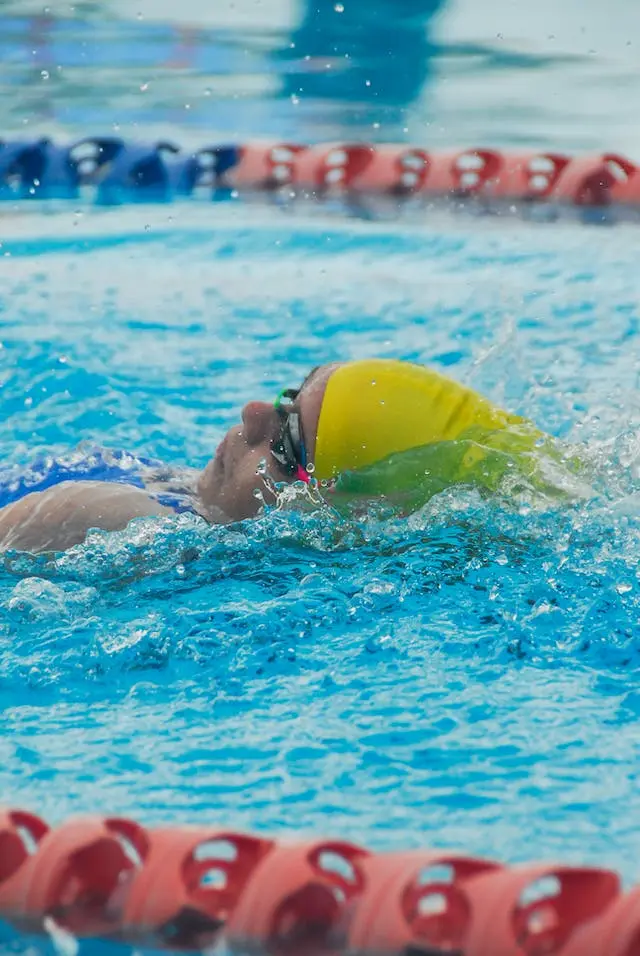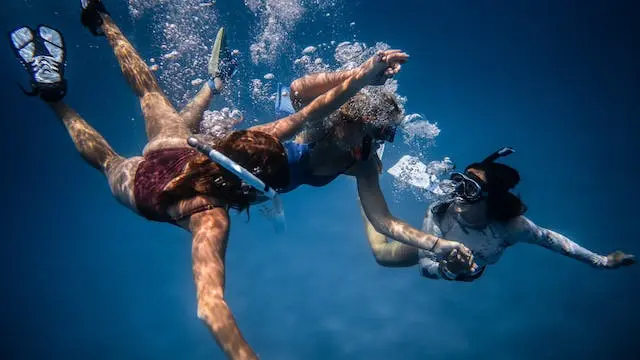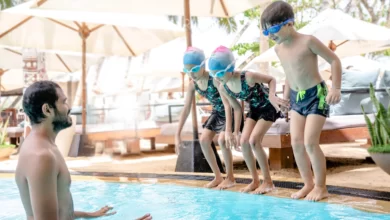Complete Aquatics: Choosing a Swimming Class for Individuals with Special Needs
In the vast expanse of aquatic activities, inclusivity is paramount. For individuals with special needs, finding the right swimming class is not only about learning a life skill but also about fostering a sense of belonging and joy. In this comprehensive guide, we delve into the nuances of choosing an inclusive swimming class, ensuring everyone can dive into the transformative benefits of aquatics.
In this article,
Why is it important to choose an inclusive swimming class for individuals with special needs?
Swimming lessons should be included for several reasons. First of all, it gives people with special needs the chance to benefit from swimming’s psychological and physical advantages. Second, it encourages social relationships and emotional health by cultivating a sense of community and belonging. Finally, inclusive education helps to dismantle social barriers and foster a community that is more caring and understanding.
What factors should I consider when selecting a swimming class for my child with special needs?

a. Qualified Instructors: Look for classes with instructors trained in adaptive aquatics who understand the diverse needs of individuals with disabilities.
b. Facility Accessibility: Ensure the swimming facility is wheelchair accessible and has appropriate accommodations for individuals with mobility challenges.
c. Class Size and Structure: Opt for smaller class sizes and classes that are structured to cater to individual needs, allowing for personalized attention and support.
How do I determine the right level of support my child needs during swimming classes?
a. Consultation with Professionals: Seek advice from paediatricians, therapists, or special education professionals to understand your child’s specific needs.
b. Observation Period: Consider observing a class beforehand to gauge the level of support provided and whether it aligns with your child’s requirements.
c. Open Communication: Establish open communication with the instructor and express your child’s needs, preferences, and any concerns you may have.
What adaptive equipment and resources should I expect in an inclusive swimming class?

a. Adapted Pool Equipment: Look for classes that provide adaptive equipment like swim vests, floatation devices, and modified pool entries to enhance safety and support.
b. Visual and Auditory Aids: Inclusive classes may incorporate visual or auditory cues to aid individuals with sensory challenges in understanding and following instructions.
c. Individualized Lesson Plans: A good class will offer individualized lesson plans tailored to each participant’s abilities, ensuring a personalized and effective learning experience.
How can I prepare my child for an inclusive swimming class?
a. Pre-Visit Familiarization: Arrange a pre-visit to the swimming facility to familiarize your child with the environment, helping to reduce anxiety.
b. Social Stories or Visuals: Use social stories or visual schedules to explain the steps involved in attending a swimming class, making the experience more predictable and manageable.
c. Positive Reinforcement: Encourage and motivate your child through positive reinforcement, emphasizing the enjoyable aspects of swimming.
What are some common misconceptions about inclusive swimming classes, and how can I navigate them?

a. Misconception: Limited Progress: Some may believe that individuals with special needs make limited progress. However, with the right support, many can achieve significant milestones.
b. Navigating: Set realistic goals. Work with the instructor to set realistic and achievable goals for your child, celebrating small victories along the way.
How can I support and encourage social interactions for my child in an inclusive swimming class?
a. Buddy Systems: Inquire if the class has a buddy system where participants are paired with a peer for additional support and companionship.
b. Group Activities: Look for classes that incorporate group activities, promoting social interactions and fostering a sense of camaraderie among participants.
How do I address safety concerns in an inclusive swimming class for individuals with special needs?

a. Communication with Instructors: Regularly communicate with the instructor about any safety concerns or specific precautions that need to be taken for your child.
b. Emergency Protocols: Ensure the facility has clear emergency protocols in place and that instructors are trained to handle diverse situations.
Can individuals with special needs participate in competitive swimming?
Yes, many individuals with special needs can participate in adaptive or para-swimming competitions. These competitions are structured to accommodate various disabilities, providing a platform for individuals to showcase their skills and compete at different levels.
How can I advocate for more inclusive swimming programs in my community?
a. Engage with Local Authorities: Reach out to local swimming facilities, community centres, and educational institutions to express the need for inclusive programs.
b. Raise Awareness: Advocate for inclusivity by raising awareness about the benefits of adaptive aquatics and dispelling myths or misconceptions.
c. Collaborate with Supportive Organizations: Collaborate with organizations or advocacy groups focused on disabilities to garner support and resources for inclusive swimming initiatives.
Conclusion
Inclusive aquatics is not just about learning to swim; it’s about embracing a culture of acceptance, understanding, and shared joy. By selecting the right swimming class for individuals with special needs, we create a space where everyone can experience the transformative power of water, breaking down barriers and fostering a more inclusive and compassionate community.

How do I find an inclusive swimming class for my child with special needs in my community?
a. Community Resources: Check with local community centers, YMCAs, or recreational facilities, as they often offer inclusive swimming classes. b. Specialized Organizations: Reach out to organizations that focus on disabilities or special needs, as they may have information on inclusive aquatics programs. c. School or Therapist Recommendations: Consult with your child’s school or therapist for recommendations, as they may have insights into local programs catering to special needs.
Are there financial assistance programs available for inclusive swimming classes for individuals with special needs?
a. Nonprofit Organizations: Explore nonprofit organizations that support individuals with disabilities, as they may provide financial assistance or scholarships for swimming programs. b. Local Grants: Inquire about local grants or community programs that aim to make recreational activities, including swimming classes, accessible to everyone. c. Facility Scholarships: Check with swimming facilities directly, as some may offer scholarships or sliding-scale fees to ensure inclusivity in their programs.





